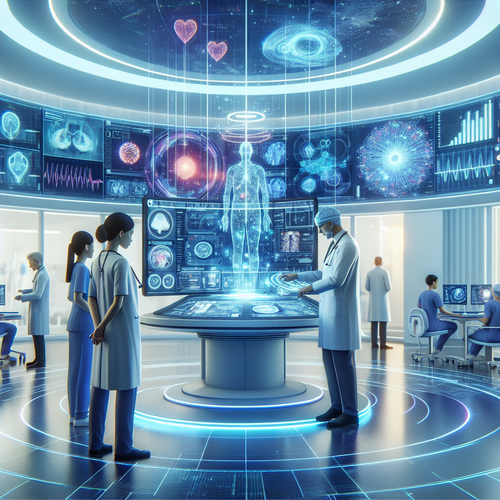
Revolutionizing Healthcare: AI-Powered Medical Imaging
Revolutionizing Healthcare: AI-Powered Medical Imaging
Artificial Intelligence (AI) is making profound changes in various industries, and healthcare is no exception. One of the most exciting advancements is in medical imaging. By harnessing AI technologies, healthcare providers are transforming the way diagnoses are made and treatments are planned, ultimately improving patient outcomes.
The Role of AI in Medical Imaging
Medical imaging plays a vital role in diagnosing and monitoring diseases. Traditional imaging techniques such as X-rays, MRIs, and CT scans generate vast amounts of data that healthcare professionals must analyze to make informed decisions. Here, AI steps in by assisting in interpreting these images with high precision.
Enhancing Diagnostic Accuracy
AI algorithms can analyze medical images faster than human experts. By employing machine learning techniques, AI systems are trained on large datasets to identify patterns and anomalies. This capability not only speeds up the diagnostic process but also reduces the risk of human error.
For instance, AI can detect early signs of diseases like cancer, often before they become evident to the human eye. Recent studies have shown that AI can outperform radiologists in certain tasks, leading to quicker and more accurate diagnoses.
AI in Radiology
- Automated Image Analysis: AI algorithms can automatically scan images, highlighting potential areas of concern for radiologists to review.
- Predictive Analytics: By analyzing patterns in imaging data, AI can predict the likelihood of disease progression, improving patient management.
- Streamlined Workflows: AI tools help radiologists prioritize urgent cases, ensuring patients receive timely care.
Applications Beyond Diagnosis
Beyond diagnostics, AI-powered medical imaging has applications in treatment planning. For example, AI can assist surgeons by providing 3D reconstructions of anatomical structures based on imaging data. This technology allows for more precise surgical interventions.
Challenges and Considerations
While the benefits of AI in medical imaging are significant, several challenges remain. Data privacy is a critical concern as medical images can contain sensitive patient information. Additionally, healthcare professionals must ensure they maintain control over AI systems, using them as tools to enhance their clinical judgment rather than replace it.
Moreover, there’s a need for regulatory frameworks that address the use of AI in healthcare to ensure safety and efficacy.
The Future of AI in Medical Imaging
As AI technology continues to advance, its integration into medical imaging will likely deepen. Future innovations may bring about fully automated diagnostic systems capable of operating with minimal human oversight.
To stay updated on trends in healthcare technology, check out our post on Exploring the Future of AI in Healthcare Technology which delves deeper into how AI is shaping the field.
Conclusion
AI-powered medical imaging stands at the forefront of a healthcare revolution. By enhancing diagnostic accuracy, assisting in treatment planning, and streamlining workflows, AI is set to change the future of patient care dramatically. As we embrace these technologies, it remains crucial to navigate ethical considerations and ensure patient safety remains a top priority.













